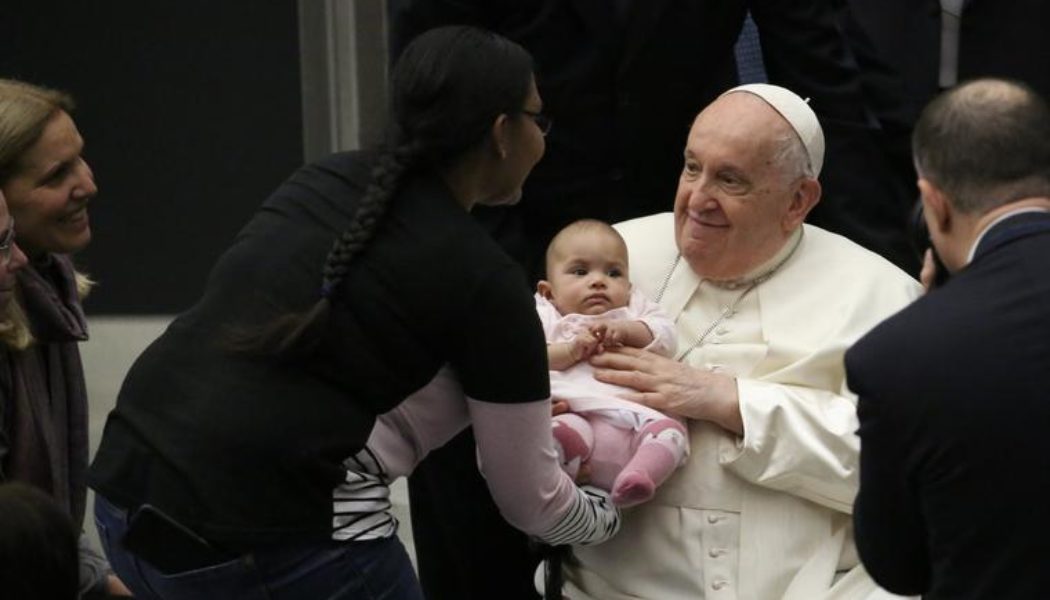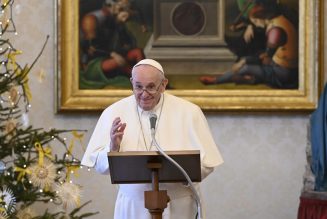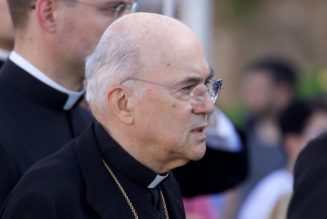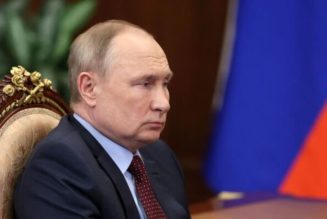
The prefect of the Dicastery for the Doctrine of the Faith said in a new interview that the document would address ‘moral questions such as sex-change surgery, surrogacy, and gender ideology.’
VATICAN CITY — The Vatican’s doctrinal chief has revealed that his dicastery is writing “a very important document on human dignity” that contains “a strong criticism” of immoral trends in contemporary society.
Cardinal Víctor Manuel Fernández, the Vatican’s prefect at the Dicastery for the Doctrine of the Faith (DDF), told the Spanish news agency EFE on Friday that the new document will include “not only social issues but also a strong criticism of moral questions such as sex-change surgery, surrogacy, and gender ideology.”
The news comes days after Pope Francis spoke out against surrogate motherhood, calling it “deplorable” and advocating a global ban. Francis has also often criticized gender theory, referring to it as “dangerous” and “one of the most dangerous ideological colonizations” that blur the differences and value of men and women.
In November 2022, Dutch Cardinal Willem Eijk, a former physician, called for a papal encyclical to combat the false anthropology at the heart of gender ideology. “Gender theory is being pushed in all kinds of organizations and we as a Church have not said that much about it,” he said in an interview.
Cardinal Fernández, who has come under fire for a series of controversial documents since he took up his post as prefect of the Dicastery for the Doctrine of the Faith in September, said the forthcoming text will allow “most people who are concerned” about his work “to be put at ease.”
Since succeeding Cardinal Luis Ladaria as prefect of the DDF just four months ago, Cardinal Fernandez has had a tumultuous start to his tenure, coupled with a relatively prodigious output.
He has issued responses to two series of dubia, one from five cardinals with five questions seeking clarification about the October Synod on Synodality. The cardinals judged the response insufficient and so resubmitted new dubia, which have not yet been answered.
The second dubia, from Cardinal Dominik Duka, regarded administration of the Eucharist to divorced people living in a new union. His earlier predecessor as DDF prefect, Cardinal Gerhard Müller, strongly criticized Cardinal Fernández’s response, expressing astonishment that Cardinal Fernández had indicated such couples should decide for themselves whether or not they should receive Communion.
Cardinal Fernández has also issued four responses to doctrinal questions, all but one of them drawing controversy.
The first concerned participation in the sacraments of baptism and matrimony by transgender persons and homosexual persons; the second reasserted the Church’s ban on Freemasonry and its irreconcilability with the Catholic faith; the third was about preservation of ashes following cremation; and the fourth regarded access to the Eucharist for single mothers.
Lastly, on Dec. 18, Cardinal Fernández issued the declaration Fiducia Supplicans on the blessing of same-sex couples and those in irregular unions. After it was outright rejected or given a generally negative appraisal by a significant number of cardinals, bishops and bishops’ conferences, Cardinal Fernández published a follow-up document that aimed to help clarify the declaration.
In his interview with EFE, Cardinal Fernández said he does not presently foresee further such controversial documents: “I must say that I don’t think I will be in the news in the foreseeable future because in the dicastery we don’t foresee topics that could be very controversial, like the last ones.”







